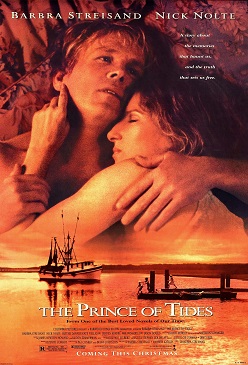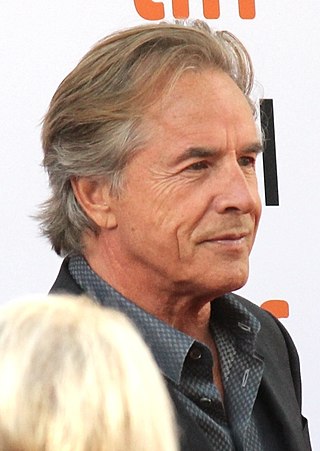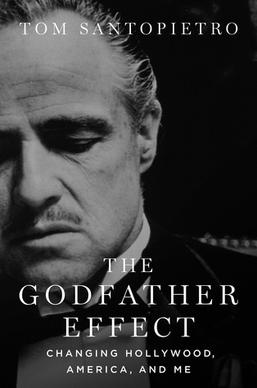
William Wyler was a German-born American film director and producer who won the Academy Award for Best Director three times, those being for Mrs. Miniver (1942), The Best Years of Our Lives (1946), and Ben-Hur (1959), all of which also won for Best Picture. In total, he holds a record twelve nominations for the Academy Award for Best Director.

Barbara Joan "Barbra" Streisand is an American singer, actress, and director. With a career spanning over six decades, she has achieved success in multiple fields of entertainment and is among the few performers awarded an Emmy, Grammy, Oscar, and Tony (EGOT).

The Prince of Tides is a 1991 American romantic drama film directed and co-produced by Barbra Streisand, from a screenplay written by Pat Conroy and Becky Johnston, based on Conroy's 1986 novel of the same name. It stars Streisand and Nick Nolte. It tells the story of the narrator's struggle to overcome the psychological damage inflicted by his dysfunctional childhood in South Carolina.

Donnie Wayne Johnson is an American actor, producer and singer. He played the role of James "Sonny" Crockett in the 1980s television series Miami Vice, for which he won a Golden Globe, and received a Primetime Emmy Award nomination for his work in the role. He also played the titular character in the 1990s series Nash Bridges. Johnson received a star on the Hollywood Walk of Fame in 1996.

Jason Emanuel Gould is an American actor and singer.
Tinsel Town, Tinseltown, Tinsel-Town or other variants may refer to:
John H. Peters is an American film producer and former hairdresser.

Andrew Scott Berg is an American biographer. After graduating from Princeton University in 1971, Berg expanded his senior thesis on editor Maxwell Perkins into a full-length biography, Max Perkins: Editor of Genius (1978), which won a National Book Award. His second book Goldwyn: A Biography was published in 1989.

Barry Dennen was an American actor and writer. He is best known for playing Pontius Pilate on the original recording and later in the film of Jesus Christ Superstar.

Funny Girl is a 1968 American biographical musical comedy-drama film directed by William Wyler and written by Isobel Lennart, adapted from her book for the stage musical of the same title. It is loosely based on the life and career of Broadway and film star and comedienne Fanny Brice and her stormy relationship with entrepreneur and gambler Nicky Arnstein.
Christopher Peter Andersen is an American journalist and the author of 35 books, including many bestsellers.

William Wyler was a Swiss-German-American director and producer.

Anne Edwards is an American writer best known for her biographies of celebrities that include Princess Diana, Maria Callas, Judy Garland, Katharine Hepburn, Vivien Leigh, Margaret Mitchell, Ronald Reagan, Barbra Streisand, Shirley Temple and Countess Sonya Tolstoy.

Richard Jay-Alexander is an American Broadway producer and director. He served as Executive Director of the New York City office of producer Cameron Mackintosh for twelve years, known for productions including Les Misérables, Cats, The Phantom of the Opera,Miss Saigon, Five Guys Named Moe, Oliver! and Putting It Together.

Tom Santopietro is an American author and Broadway theater manager. He worked for 25 years in the New York theater scene, managing over 30 Broadway shows.

The Godfather Effect is a 2012 critically acclaimed study of The Godfather films – as well as Mario Puzo's 1969 novel – and their effect on American culture. Written by biographer Tom Santopietro, the book demonstrates how The Godfather was a turning point in American cultural consciousness. With its emphasis on proud ethnicity, The Godfather changed not just the way Italian-Americans saw themselves, but how Americans of all backgrounds viewed their individual and national self-identities, their possibilities, and attendant disappointments.

Alan Bergman and Marilyn Keith Bergman were an American songwriting duo. Married from 1958 until Marilyn's death, together they wrote music and lyrics for numerous celebrated television, film, and stage productions. The Bergmans enjoyed a successful career, honored with four Emmys, three Oscars, and two Grammys. They are in the Songwriters Hall of Fame.

Tinseltown: Murder, Morphine, and Madness at the Dawn of Hollywood (ISBN 978-0-062-24216-7) is a book by William J. Mann published by HarperCollins on 14 October 2014. It won the Edgar Award for Best Fact Crime in 2015.

Funny Lady is the soundtrack album of the 1975 musical film of the same title, starring Barbra Streisand. Released by Arista Records on March 15, 1975, arranged, conducted, and coordinated by Peter Matz, the album's fifteen tracks are performed by Streisand, James Caan, and Ben Vereen. A sequel to the 1968 musical comedy-drama Funny Girl, the songs extend the semi-biographical account of the life of American performer Fanny Brice. Funny Lady also included songs written by Brice's third husband Billy Rose. New music by Kander and Ebb included "How Lucky Can You Get", the album's only single, released in April 1975.














